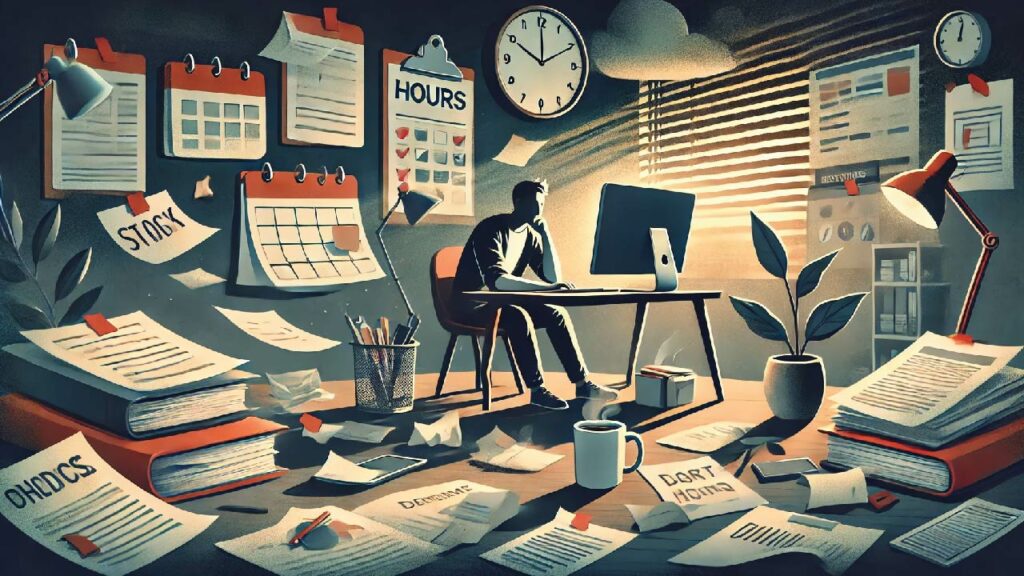7 Powerful Strategies to Maintain a Healthy Work-Life Balance

Freelancing offers unparalleled freedom and flexibility, but it can also bring unique challenges to mental health and work-life balance. As a freelancer, managing projects, clients, deadlines, and personal life without the traditional office support structure can be daunting. In this comprehensive guide, we’ll explore strategies to maintain mental health for freelancers and ensure a healthy work-life balance.

Understanding Mental Health Challenges in Freelancing
The Nature of Freelancing
Freelancing can be rewarding, but it comes with instability and isolation that can impact mental health. Freelancers often face irregular income, lack of social interaction, and blurred lines between work and personal life. These factors can contribute to stress, anxiety, and burnout.
Identifying the Symptoms
Recognizing the symptoms of mental health issues is crucial. Symptoms may include constant worry, difficulty concentrating, changes in sleep patterns, and a sense of hopelessness. Early identification allows for timely intervention and management.
The Importance of Community
Isolation is a common issue among freelancers. Engaging with a community, whether through coworking spaces, online forums, or local meetups, can provide social interaction, support, and networking opportunities.

Strategies for Maintaining Mental Health for Freelancers
1. Establishing a Routine
Creating a daily routine can provide structure and stability, reducing anxiety and improving productivity. Set regular working hours, including breaks, and stick to them as much as possible. This separation of work and personal time can help in maintaining a work-life balance.
2. Setting Boundaries
Clear boundaries between work and personal life are essential. Designate a specific workspace, avoid working in bed or on the couch, and inform family and friends of your working hours. This helps in minimising distractions and maintaining focus.
3. Prioritising Self-Care
Self-care is not a luxury; it’s a necessity. Incorporate activities that promote physical and mental well-being into your daily routine. Exercise regularly, eat a balanced diet, get enough sleep, and engage in hobbies that you enjoy.
4. Managing Finances Wisely
Financial instability can be a significant stressor. Create a budget, save for emergencies, and consider diversifying your income streams. Having a financial cushion can provide peace of mind and reduce anxiety.
5. Seeking Professional Help
6. Utilising Productivity Tools
7. Embracing Flexibility

Key Takeaways
Balancing Work and Life
Balancing work and life as a freelancer requires intentional effort and planning. By establishing a routine, setting boundaries, prioritising self-care, managing finances, seeking help when needed, utilising productivity tools, and embracing flexibility, you can maintain a healthy work-life balance and safeguard your mental health.
The Power of Connection
Building a supportive network is vital. Whether through professional groups, social networks, or personal relationships, staying connected can provide emotional support, reduce feelings of isolation, and offer opportunities for collaboration and growth.
Adapting to Change
Freelancing often involves adapting to changing circumstances. Developing resilience and a positive mindset can help you navigate challenges more effectively. Embrace change as an opportunity for growth and stay open to new experiences and learning.
Continuous Learning and Development
Investing in your personal and professional development can enhance your skills, boost confidence, and open up new opportunities. Take courses, attend workshops, and stay updated with industry trends to stay competitive and motivated.

Freelancing offers a unique blend of freedom and flexibility, yet it also presents significant challenges to maintaining mental health and a healthy work-life balance. By understanding these challenges and implementing practical strategies, freelancers can thrive both professionally and personally. Establishing a routine, setting boundaries, prioritising self-care, managing finances wisely, seeking professional help when necessary, using productivity tools, and embracing flexibility are essential steps in this journey.
Additionally, fostering connections within a supportive community and continuously investing in personal and professional development can further enhance well-being. Remember, your mental health is just as important as your career success. With intentional effort and proactive measures, you can achieve a balanced and fulfilling freelance life.
